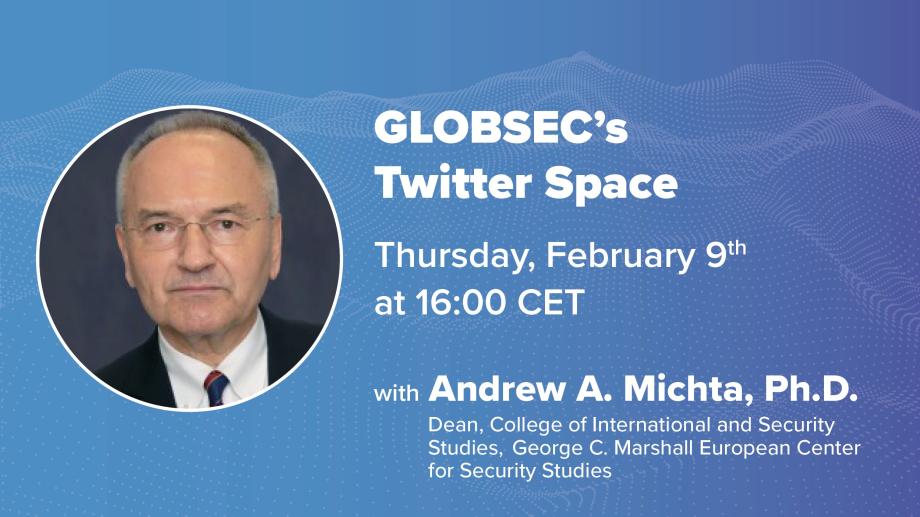Podcast
Twitter Space: Ballooning Policy Issues

Not since the invention of hot air balloons has a balloon captivated such international attention like the recent Chinese surveillance balloon flying over America. Live from the George C. Marshall European Center for Security Studies Dr Andrew Mitcha, Dean of the College of International and Security Studies speaks with Roger Hilton to review the diplomatic implications between Beijing and Washington, priorities for Foggy Bottom, the dilemma between faster arm delivery and escalation management for Ukraine against Russia, South Korea providing stocks to Ukraine, and the atrophy of New START.
What are the key points discussed in the episode?
- The decision by Secretary State Blinken to cancel his trip to Beijing sent a strong signal both to Beijing and allies alike that the violation of American airspace was unacceptable behavior and that the appropriate policy response would follow suit.
- The Sino-Russian relationship is operating on the premise that it opposes the rules-based international order, where America’s resolve and response to either adversary is closely scrutinized and assessed to gauge future policy responses and foreign initiatives.
- China’s potential use of kinetic force to down American aerial property could be viewed as escalatory, but the situation suggests that the current rhetoric would not be matched with action.
- China is trying to have it both ways when it comes to its relationship with America. It is their priority to maintain a working relationship with America when it comes to connectivity and commerce, while trying to simultaneously geostrategically asserting themselves in the Indo-Pacific.
- Beijing is closely watching the evolution and end state of the war in Ukraine to see what type of power Russia emerges as, and how the security environment changes in Europe. The conflict in Europe can be categorized as “system transforming war” with global implications.
- In regard to Beijing, Washington’s main diplomatic priority should focus on how to adjust the bilateral relationship after 30 years and reform the operating assumption that China’s integration into the global economy would produce a responsible stakeholder in the international system.
- Russia is a revisionist power that doesn’t want to dismantle the international system but instead is intent on re-ligating Cold War grievances to restore perceived spheres of influence.
- In contrast, China, by orders of magnitude, poses a greater threat to the United States as it desires to replace the international order based on its values and institutions, centered on its politico-military economic power. The current interwovenness of national economies, especially along the lines of critical infrastructure, make this issue significantly more difficult to navigate.
- Europe’s protracted period of disarmament throughout the post-Cold War period and the hostility underlining the current security environment confirm that European nations need to invest in their defence industry and shift from “just in time” to “just in case,” stockpiling to provide their own forces and partners like Ukraine.
- Russia is committed to its strategy of deploying overwhelming mass to grind down its opponents, and for the moment, can count on massive post-Soviet arms stocks as well as foreign partners like Iran and North Korean to allow them unequal balance to sustain fighting.
- Democratic governments around the world need to invest in defence and build exercise capabilities to effectively deter an aggressor, and if necessary, defend and defeat enemies.
- Hitting inside Russia with Western-made weapons should be permissible for Ukrainian operational planning with the target to slow down Russia military effort and cripple logistical free movement.
- Should South Korea provide more direct military aid to Ukraine, China’s reaction should be studied given their non-neutral position vis-à-vis the war and alignment with Russia, where the potential manufacturing of a crisis though North Korea on the Korean Peninsula cannot be ruled out.
Listen to the full episode below.
